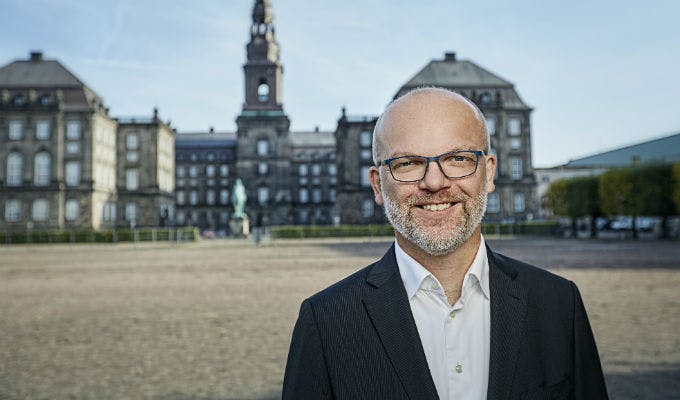"That is why many Swedish companies have reason to be interested in Danish politics"
2019-11-25
Three quick questions to Benny Damsgaard, associate senior advisor and New Republic’s resource in Copenhagen.

You have worked in both the Danish and Swedish political systems. What are the most important differences?
– A considerable difference is that there are very few political civil servants in Denmark. Danish ministers have their own personal advisors, but there are no politically appointed regional or municipal civil servants. This means that especially Danish ministers are extremely busy people. For those without the right contacts, they can be very difficult people to get in contact with.
And perhaps the tone of the political debate is harsher, among other things in immigration matters. But it is an increasingly smaller difference.
What will be the most important Danish political events of 2020 that Swedes ought to have an eye on?
– Two major political negotiations going on in Denmark ought to be of interest even to Swedes. A broad majority in the Danish parliament is expected prior to Christmas to pass new climate legislation that stipulates that the Danish CO2 reduction goal is 70 per cent by 2030. The challenge comes next spring when the politicians will state how this goal will be achieved.
As things stand at present, this will above all mean changes in agriculture and transport seeing as these sectors in Denmark are currently the largest carbon dioxide emitters. It is still unclear what the new climate legislation will mean, for example, for Swedish freight transport across the Sound. Even if negotiations are already underway, it still might be possible to exert an influence.
The other major negotiation Sweden ought to keep tabs on is the broad agreement that forms the basis for the next Danish infrastructure investment plan. Up to now, the policy pursued prior to the negotiations has made no reference to the ‘Öresund issues’. The question is whether they will be included in the forthcoming plan, which will be negotiated in the spring. The opportunity is there.
Why should Swedish companies put time and resources into influencing Danish decision makers?
– Denmark is still one of Sweden’s largest and most important trade partners. That is why many Swedish companies have reason to be interested in Danish politics. It is not at all unrealistic that Swedish interests can influence political decisions in Denmark, but it presupposes that you are familiar with the Danish decision-making process and climate of debate. And that you take a long-term approach to your work – policy takes time, even in Denmark.
Benny Damsgaard was interviewed by Jean-Daniel Maurin, a partner at New Republic. ‘Three Quick Questions…’ is a series of interviews conducted by New Republic.